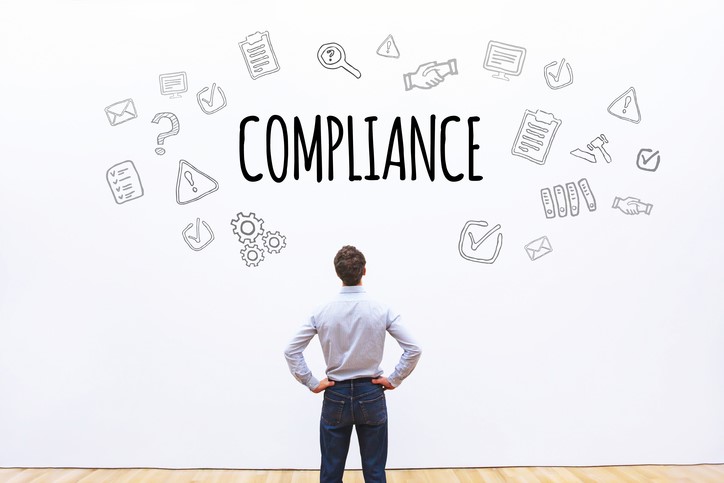California's Brown Act has gone high tech. Starting January 2019, local 'legislative bodies' (including boards of directors) will be able to give 'effective notice' of upcoming meetings online if they have websites. They will still have to mail hard copy to any citizen or media outlet that requests it, but the labor saved by the digital transition will be considerable. Before local governments go shopping for website providers, they should read the amendment closely to avoid unpleasant surprises after investing in software that still doesn't satisfy the new requirements. To meet the standards of 'substantial compliance,' boards need software that incorporates five features specified by the new amendment.
When seeking software, it is imperative to recognize that the specifications of the amendment are not standard features of every portal provider. In fact, the vendors cater to particular markets with specialized needs. Local governments frequently play second fiddle as site providers introduce innovations that serve larger markets at their expense. Taking a calculated risk that serves its business model, Microsoft recently enhanced numerous features of SharePoint for intranet uses, even though it meant eliminating the public-facing web capacity that is required of small governments. The good news is that some portal providers do cater to the needs of local boards. The best of those will have all of the features required by the recent amendment.
The amendment is quite clear: Public-facing websites must make your documents and attachments:
Searchable
The amendment calls for the agenda and attachments to be 'retrievable, downloadable, indexable, and electronically searchable by commonly used internet search applications.' This requirement is likely to evoke considerable inadvertent violations, as many website providers do not provide searching capacity. Some public-facing board portals that cater to local governments, however, have built in this feature.
Even then, look for significant differences.
Many board portals boasting 'searchability' make the agenda searchable but leave attachments out in the cold. As attachments have many more pages than the agenda itself, a search of the agenda does little good when you're trying to find out about a certain topic quickly.
The gold standard is searchability of the agenda as well as all attachments. Say you just received your board packet and you need to find everything in it pertaining to traffic control. You could spend hours reading all 50 pages of attached documents, or you could enter 'traffic control' and conduct an instant word search of all 50 pages. Plugging in synonyms would take only a few more seconds: You may as well try 'traffic flow' and 'highway patrol.' Once boards have sampled searchability at this level, they never turn back.
Reusable
The agenda is required to contain no 'restriction that would impede the reuse or redistribution of the agenda.' Storing the agenda keeps it reusable even after the meeting has passed. Look for a portal that provides free unlimited storage of documents. You should never pay to add materials to your portal. With an online archive, you can even keep a growing body of relevant materials organized for reference purposes.
Free
Users must not hit a paywall when they click to open the agenda packet, and access to the portal cannot come with a subscription fee. This requirement serves the same function served by the time-honored rule that meetings themselves cannot be held in venues with a cover charge or pressure to buy things.
Easy to read
The law stipulates that text in the agenda must be 'platform independent and machine readable.' If you're not sure if your portal provides this function, test it. New or arcane software might use code that is inscrutable to character-recognition applications. While you're at it, check some ADA (Americans with Disabilities Act) requirements off your list. Check also that your text is recognizable for the purpose of conversion to audio format.
Intuitive
Fearing 'secret government' in strange new forms, the amendment makes sure that the link to the agenda doesn't get buried on a busy, overwhelming website. It specifies that the link to the agenda must be placed where people can plainly see it. It should not be placed within a contextual menu that pops up only when the user has somehow interacted with the interface. The amendment calls for the link to the agenda to be 'prominent' and 'direct' on the board's website. California city attorneys are advising that the link should be 'intuitively navigable by a site visitor.'
Using software that meets these standards can bring a local board into full compliance with the new amendment covering the posting of meeting agendas. The other new provision takes more judgment than hardware. A simultaneous amendment requires full public discussion of any salary deliberations, and recent lawsuits resulted in some refinement of the requirement that meeting discussion not veer from items posted on the agenda. The recent limit on the number of email recipients is new for California, but otherwise boards can comply by continuing to use prudence to keep public business squarely in the public domain.
With the right software, your local board can comply fully with the new amendment to California's open meeting law. By being highly specific about what you need from software, it is possible to meet and exceed the coming requirements.





